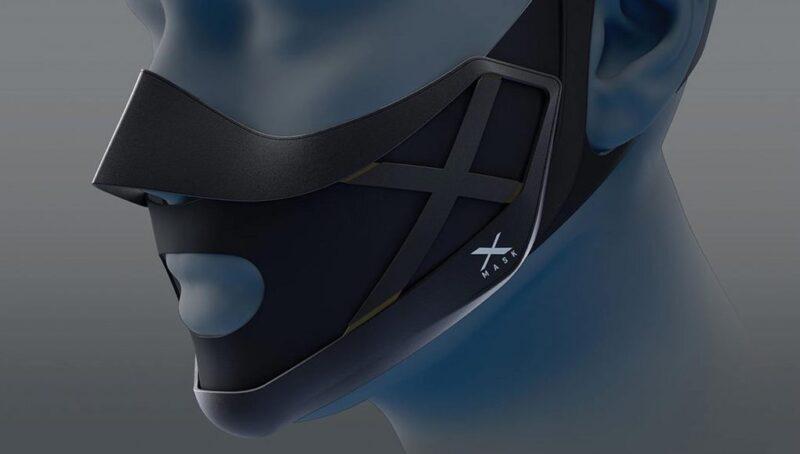A start-up is breaking new ground in face tracking: instead of cameras, the so-called X Mask uses special sensors in the elastic material to capture facial expressions and transmit them in VR.
A major goal of all VR applications is that the user's movements can be imitated as accurately as possible as a virtual avatar. Facial recognition, as is the case with the Meta Quest Pro or the Vive Facial Tracker, typically runs via camera detection via the glasses. Now there may be a new twist on the market: the start-up Dolami from San Francisco is currently working on the X Mask for facial expression recognition.
Face tracking via mask
Developed with the support of Osaka University, the mask is said to be able to replicate facial movements with an accuracy of over 95 per cent at a latency of 200 milliseconds.
This latency would be far too high for a VR controller in a shooter. For the conveyance of emotions in a social app like VRChas it should be sufficient for the facial expressions to reach the other person more or less at the same time as the voice and hand gestures.
The sensors are integrated inside the mask. They have no direct contact with the skin and therefore do not cause any irritation, according to the manufacturer. The start-up does not reveal detailed technical background information, but it will probably be electrodes as in comparable projects.
At 90 dollars, the X-Mask is about as expensive as HTC's Focus 3 Facial Tracker. The latter is considerably lighter at around 11 grams than the mask at 127.6 grams.
Distribution plans in Japan and the USA
The X-Mask is to be launched initially in Japan and the USA in 2023. Dolami has already founded a headquarters in San Francisco for distribution in the USA. Possible European plans are not yet known. Among the investors are CyberAgentCapital, East Ventures and F Ventures.
In Japan in particular, there is interest in precise, affordable and uncomplicated tracking technologies outside of VR, for example for recording VTube streams with avatars of virtual stars. Sony, for example, announced the affordable body tracking Mocopi for VRChat and Meta Quest in November, which uses particularly discreet sensors.
Source: Mixed









